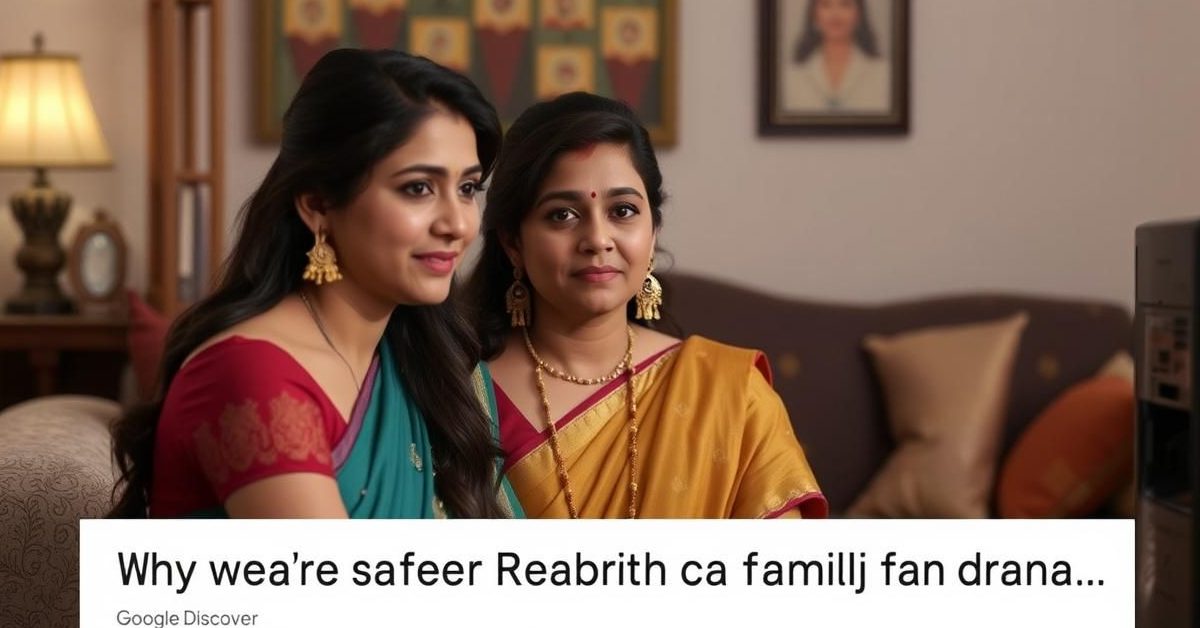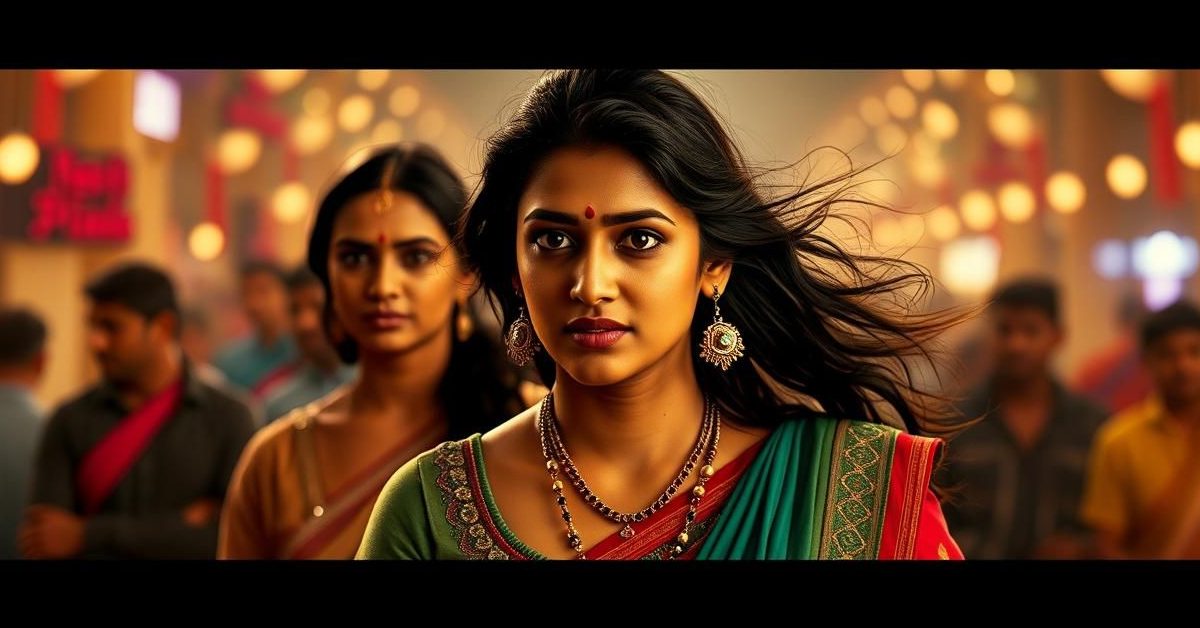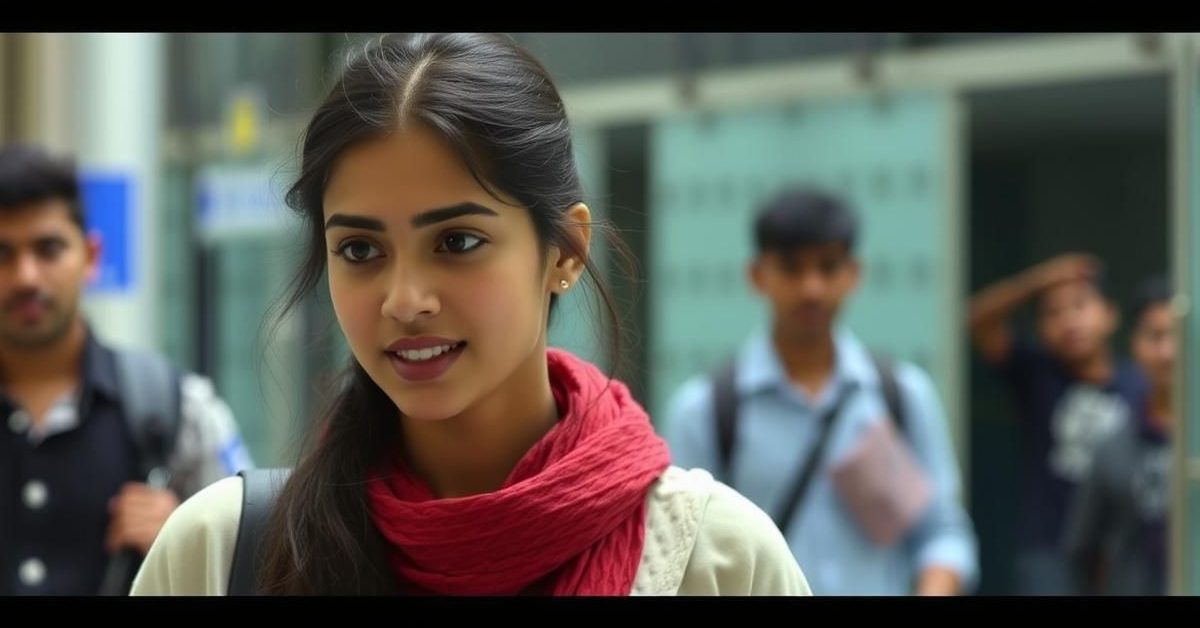The iconic Indian daily soap, Kyunki Saas Bhi Kabhi Bahu Thi, is making a comeback to television screens, prompting a critical look back at its massive influence and the enduring appeal of drama-filled family sagas.
The Return of Tulsi Virani
After nearly two decades, Kyunki Saas Bhi Kabhi Bahu Thi is set to re-air, bringing back the beloved, and often suffering, protagonist Tulsi Virani. This revival sparks both nostalgia for a show that defined an era and questions about the evolution of Indian television.
For many, Kyunki was a staple, an appointment viewing that shaped evening routines. Its return highlights a potential trend in the industry, possibly opening doors for other classic soaps to make a comeback or be rebooted.
Why We’re Drawn to Chaos and Suffering
The enduring popularity of shows centered around familial discord, sacrifice, and endless suffering often makes one wonder about their appeal. Does the unhappiness depicted on screen make us feel better about our own lives?
Some speculate it might be a form of “trauma bonding,” where viewers feel less alone in their struggles. For others, these narratives might even serve as a mirror, prompting reflection on toxicity within their own family dynamics.
Ekta Kapoor’s “K” Empire
The rise of Ekta Kapoor and her production house, Balaji Telefilms, revolutionized Indian television, establishing the daily soap as a dominant genre. Shows like Kyunki, Kahaani Ghar Ghar Kii, and Kasautii Zindagii Kay, all starting with the letter ‘K’, became household names.
These “K sagas” captivated audiences with their tales of love, marriage, tragedy, and crime, often centering on a female protagonist navigating a continuous cycle of misery and misunderstandings, while also embodying traditional values.
The Cost of Daily Drama: Quality Over Content?
The relentless demand for multiple episodes per week heavily impacted the quality of content produced. Scripts often took a backseat, replaced by dramatic background scores, exaggerated sound effects, and theatrical visual effects.
The pressure of weekly ratings pushed shows away from their initial progressive promises, often devolving into repetitive conflicts and over-the-top melodrama rather than realistic storytelling.
“Shanti Niketan” Was Anything But Peaceful
Despite being portrayed as a celebration of Indian joint family values, Kyunki Saas Bhi Kabhi Bahu Thi featured numerous controversial and often shocking plotlines. Characters from across generations engaged in indiscretions, even criminal acts.
The beloved Mihir, for instance, had an extramarital affair that resulted in an illegitimate child. The show also depicted multiple instances of sexual assault, including marital rape. Tulsi, the moral compass, committed acts like killing her son and even taking her mother-in-law off life support.
Baby swaps, kidnappings, and spouses being bumped off were common occurrences. For a family living in a home named ‘Shanti Niketan’ (Abode of Peace), peace was a rare commodity.
Moving Forward: A Hope for Evolution
While some modern Indian daily soaps have attempted to start with more progressive themes, many still fall back into familiar patterns of sordid sagas. However, audiences today are vastly different from two decades ago.
Exposure to global content, social media, and OTT platforms means viewers are more discerning. As Kyunki makes its return, there’s a hope that the Virani family’s story has evolved, offering more than just suffering and saazish. After 25 years, both the show and its audience deserve a fresh, more nuanced narrative.















